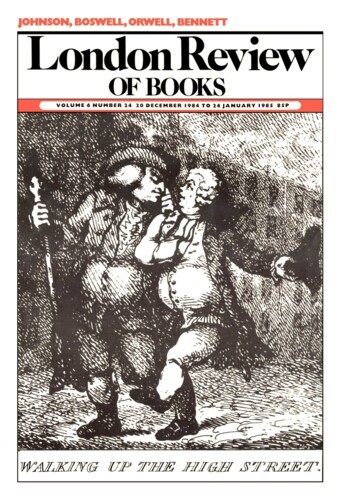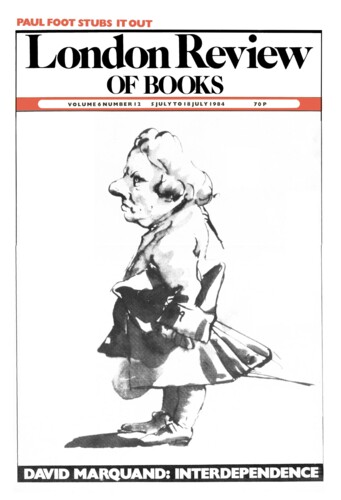The spirit in which things are said
Arnold Davidson, 20 December 1984
Since the publication of Must we mean what we say? in 1969, it has been said that Stanley Cavell’s books are unreviewable, a remark that will no doubt again be applied to his latest work. This remark has been repeated too often, by too many distinguished and distinctive philosophers, to be simply false, but neither should it be taken as flatly true. His work is explicitly meant to raise the question of what philosophical thought and writing is, and hence the question of what it is to review such thought. It is true enough that the essays in this book do not yield to standard philosophical review, which consists in the statement of an essay’s thesis with the arguments used to establish and support this thesis, and the elaboration of counter-examples intended to force a modification in the initial thesis. Cavell’s essays do not employ arguments in the service of theses designed to solve philosophical problems, and the use of counter-examples inspired by such argumentation, a dominant technique of contemporary analytical philosophy, seems irrelevant as a form of critique of his claims. Cavell’s awareness of his differences from the practices of current Anglo-American professional philosophy causes him more than once to attempt a characterisation of what he wishes philosophy to be. In the first essay of this book, in the context of addressing the claim that philosophy and film share no common border, he says that he understands philosophy as a ‘willingness to think not about something other than what ordinary human beings think about, but rather to learn to think undistractedly about things that ordinary human beings cannot help thinking about, or anyway cannot help having occur to them, sometimes in fantasy, sometimes as a flash across a landscape… Such thoughts are instances of that characteristic human willingness to allow questions for itself which it cannot answer with satisfaction. Cynics about philosophy, and perhaps about humanity, will find that questions without answers are empty; dogmatists will claim to have arrived at answers; philosphers after my heart will rather wish to convey the thought that while there may be no satisfying answers to such questions in certain forms, there are, so to speak, directions to answers, ways to think, that are worth the time of your life to discover.’



